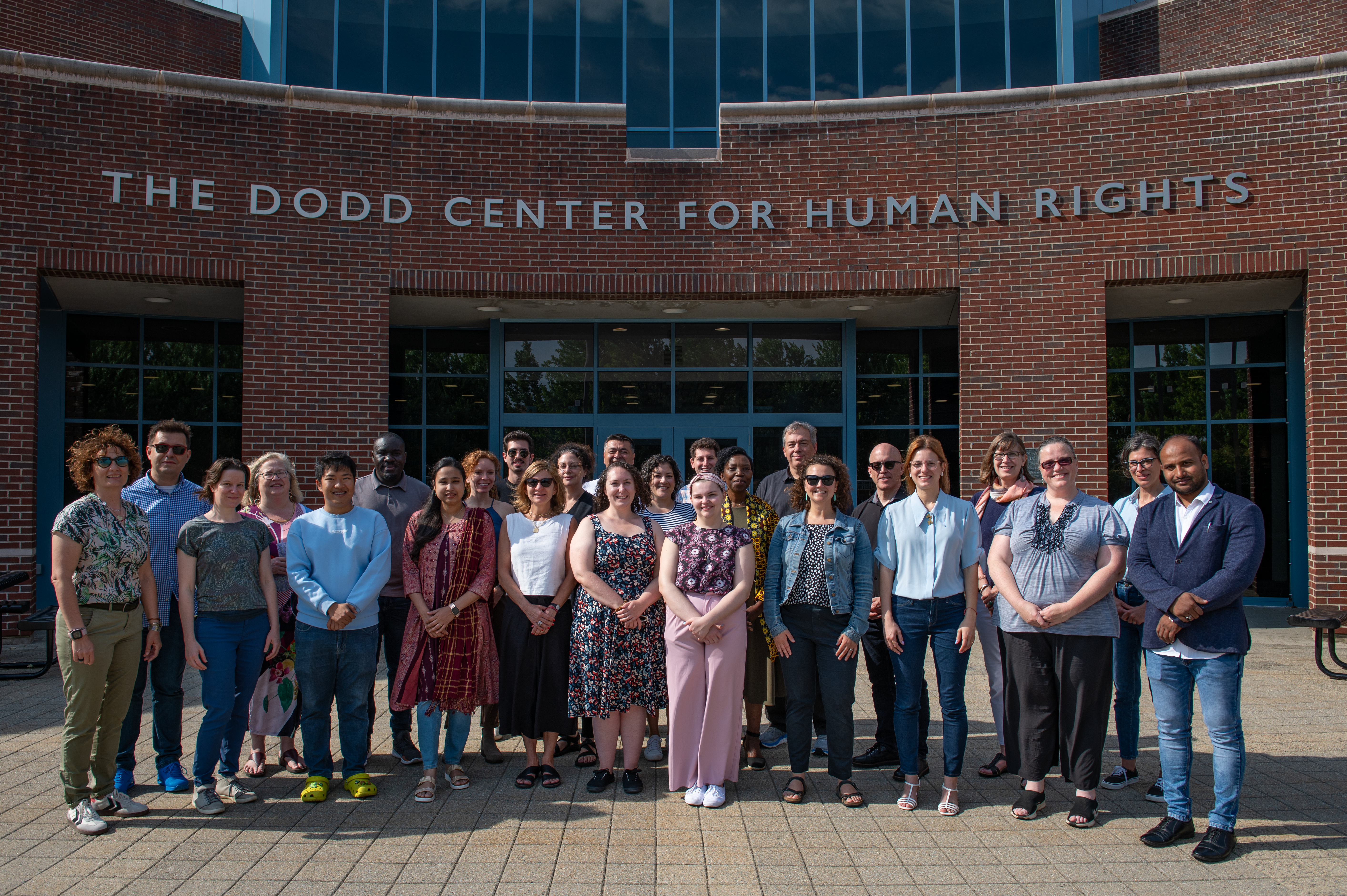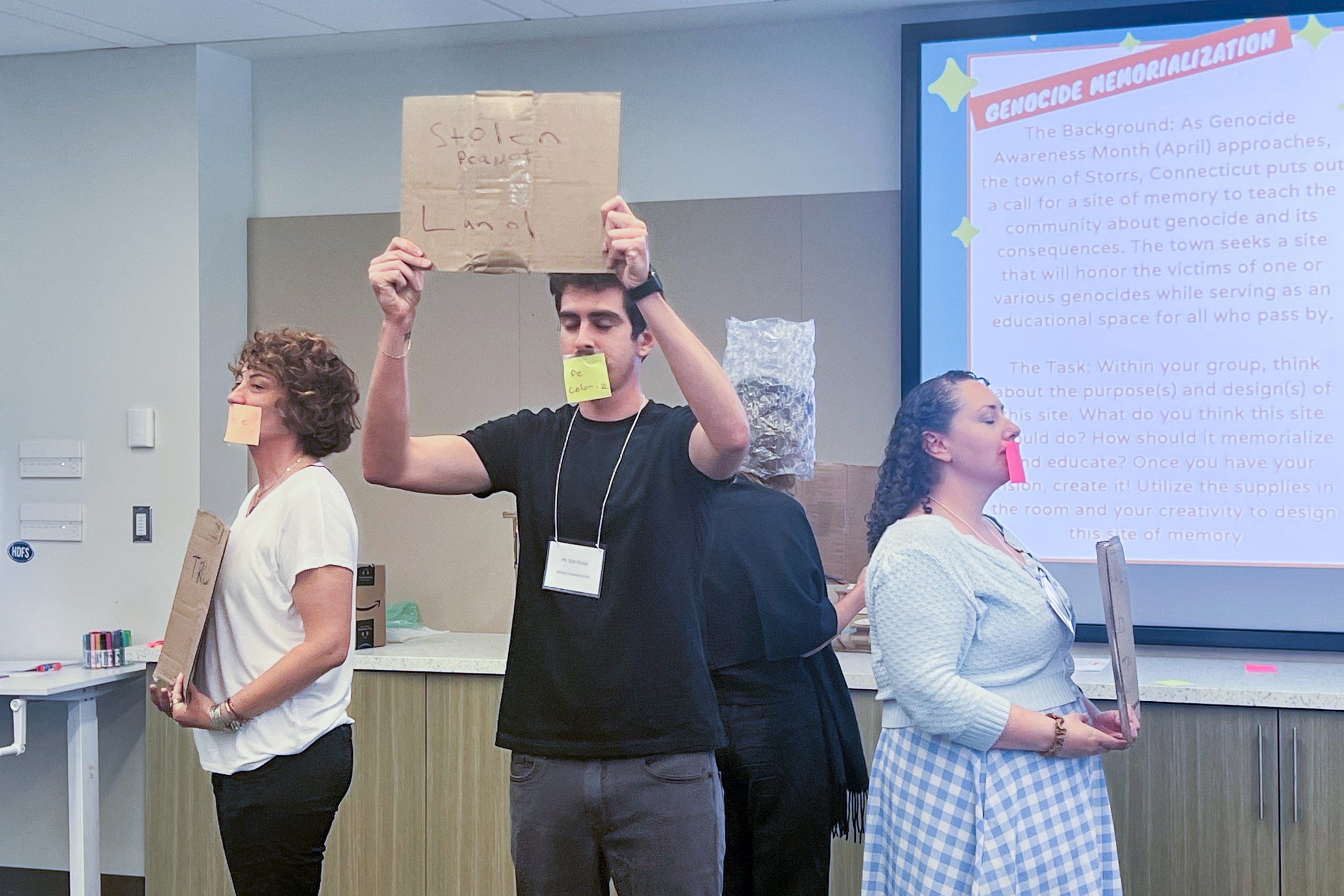Deadline: February 28, 2025

The seventh edition of the Scheidt Family Seminar on Genocide Studies and Prevention will be held June 8-13, 2025 at the University of Connecticut (UConn) in Storrs, CT.
UConn is one of the top-ranked public universities in the nation and includes the Gladstein Family Human Rights Institute, home to one of the largest undergraduate and graduate programs in human rights in the country. The Human Rights Archives at UConn include the Nuremberg trial documents of Thomas J. Dodd as well as a growing collection of primary source materials related to the International Criminal Tribunal for the former Yugoslavia (ICTY).
Objectives:
The 2025 Seminar, supported by the Charles E. Scheidt Family Foundation and hosted by the Dodd Human Rights Impact Programs of the Gladstein Family Human Rights Institute at UConn, follows on the success of previous Seminars in supporting the following objectives:
Promote
study, research, and teaching in the growing field of genocide studies and prevention as a self-standing scholarly discipline that is distinct and independent from the existing schools of academic inquiry.
Encourage
participating institutions to develop courses, academic modules, and foreign study programs incorporating genocide studies and prevention into department teaching.
Strengthen
institutional capacity in terms of teacher-scholars in genocide studies and prevention, with a goal of developing interdisciplinary academic specializations in the field (that is, a major, minor, or area of concentration) at participating institutions.
Program:
Drawing on a global range of historical case studies, and current crisis spots, the 2025 Seminar will focus on the study, research, and teaching of genocide prevention across all phases of the conflict cycle:
- Preventing genocide from ever taking place (upstream prevention or the “before” analysis of risk factors and warning signs),
- Preventing further atrocities once genocide has begun (midstream prevention or the immediate, real-time response tools available during crisis), and
- Preventing future atrocities once a society has begun to rebuild after genocide (downstream prevention or the “after” efforts to foster resiliency in a post-atrocity society).
The in-person Seminar is intended primarily for full-time university teachers interested, or already teaching, in the field of genocide studies. Faculty intending to develop new courses or academic programs incorporating genocide studies and prevention into department teaching are particularly encouraged to apply. Applications from current PhD students and post-docs; secondary school, museum, center, and civil society educators; and government actors also are encouraged. The Seminar is intentionally interdisciplinary, so it welcomes applications from across the disciplinary spectrum.
Director and Instructional Team:
The Seminar director is Dr. James Waller, Christopher J. Dodd Chair in Human Rights Practice at the University of Connecticut and a Visiting Scholar at the Senator George J. Mitchell Institute for Global Peace, Security and Justice, Queen’s University Belfast. Waller is author of Becoming Evil: How Ordinary People Commit Genocide and Mass Killing (2002, 2nd ed., Oxford University Press), Confronting Evil: Engaging Our Responsibility to Prevent Genocide (2016, Oxford University Press), and A Troubled Sleep: Risk and Resilience in Contemporary Northern Ireland (2021, Oxford University Press). In 2017, Waller was the inaugural recipient of the Engaged Scholarship Prize from the International Association of Genocide Scholars.
The Seminar’s instructional team also will include internationally recognized academics and practitioners in the field of genocide studies and prevention from the US, Latin America, Africa, and Southeastern Europe. In addition, recognizing the expertise participants will bring to the Seminar, each participant will have an opportunity to workshop syllabi, course ideas, modules, assignments, etc. with fellow participants in a shared learning community. Participants will also join an alumni network of nearly 100 previous Seminar fellows around the globe.
Past participants have described their Seminar experience as “the single-most important, and best, professional development educational experience I have been a part of in my 19 years since I first entered graduate study” and felt they were “able to take away tangible and digestible tools and information to share with my students and broader network of scholars and activists.”
Any additional questions about the Seminar can be directed to Dr. James Waller at james.waller@uconn.edu.
Financial Support:
Due to a generous gift from the Charles E. Scheidt Family Foundation, the Seminar is funded to provide fellows five nights of single lodging in a hotel next to campus and food for the entirety of the program. In addition, US-based participants will receive a $800 fellowship stipend to help offset travel costs to and from the Seminar. Internationally-based participants, given the greater costs associated with travel, will receive a $1,200 fellowship stipend (please note that stipends for some non-US residents are subject to a withholding tax of 30% as required by US law).
There is no tuition fee for the Seminar.
The Seminar is funded to allow for 20 participants. Participants are expected to arrange their travel to be at the Seminar for its duration (arrival on Sunday afternoon/evening June 8 by 5PM for an opening dinner and departure after 1PM on Friday afternoon June 13). The success of previous Seminars has been built, in large part, on the residential and relational experience of the program. Should public health considerations not allow for that in-person component, the Seminar will be postponed until the following summer rather than convened virtually.
Application:
To apply for the 2025 Seminar, please send the following to Dr. Tyler Goldberger, Continuing Education and Alumni Coordinator for the Seminar, at hke24003@uconn.edu:
- (a) Statement of interest
- (b) List of related courses or modules currently taught (or interested in developing)
- (c) CV
The application deadline is Friday, February 28, 2025, with selection decisions communicated by Friday, March 14, 2025.
